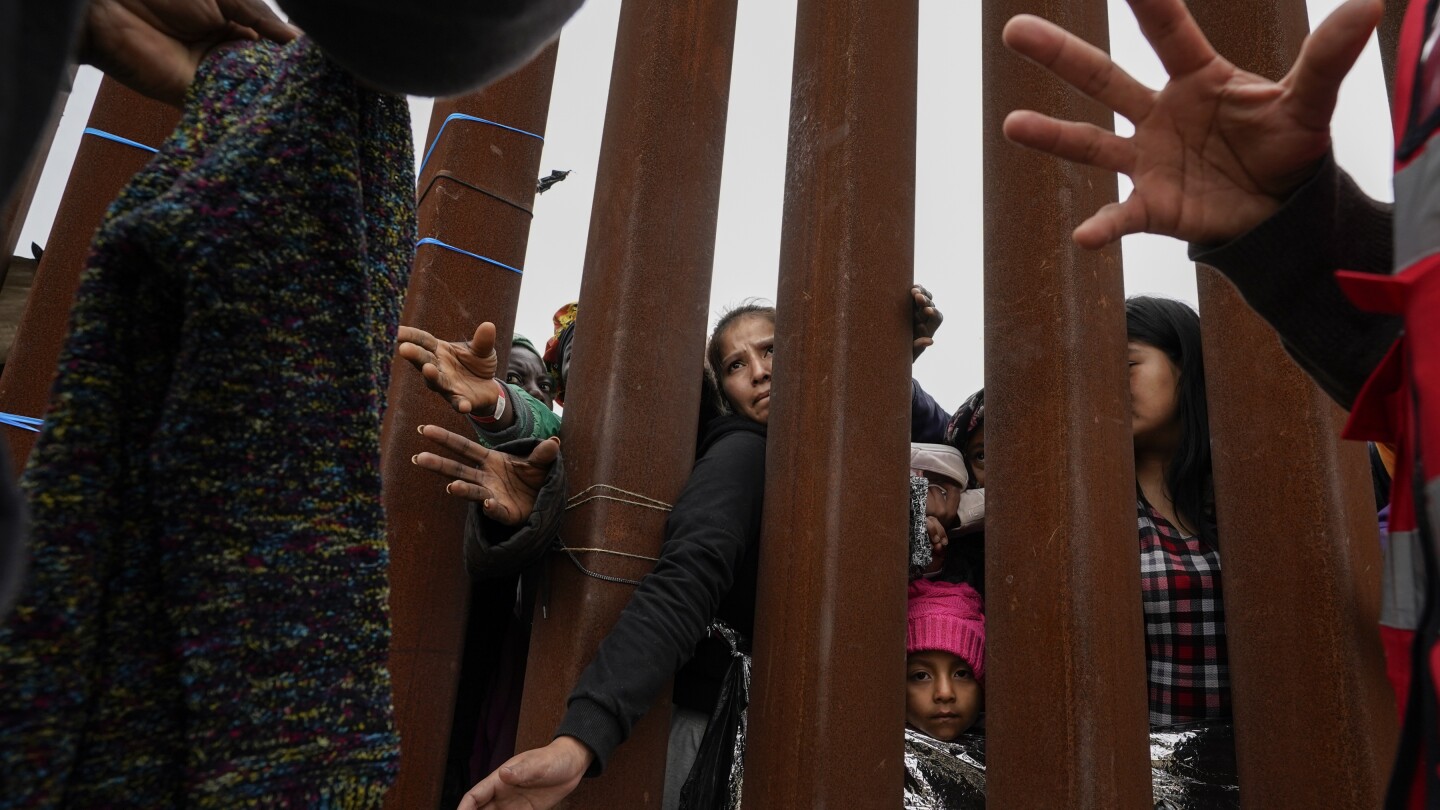SAN DIEGO (AP) — Gregory Bull began covering the U.S.-Mexico border in 1994 as a newspaper photographer at the Brownsville Herald in Texas. Since then, he has covered the border from both sides for The Associated Press, based in Mexico and later along the California side in San Diego. On Monday, together with staff photographers Eric Gay, Fernando Llano, Marco Ugarte and Eduardo Verdugo, and longtime AP freelance photographers Christian Chavez, Felix Marquez and Ivan Valencia, Bull won the Pulitzer Prize for feature photography for images that captured the harrowing global migration crisis through the Americas, a growing calamity not often covered at the human level. The photographers showed every step of the migrants’ journey, with Bull focusing on the border. Here’s what he had to say about creating this extraordinary image.
Why this photo
As the public health order that allowed the United States to quickly turn away migrants at the U.S.-Mexico border enacted during the Covid-19 pandemic ( Title 42 ) expired in 2023, many people seeking asylum were caught in between two border walls separating Tijuana, Mexico, and San Diego. Hundreds of people waited anxiously, unsure of how long they would be living in this area — not quite in the United States but no longer in Mexico. Many spent all they had to get to this point in their journey. They had no way of knowing how much longer they needed to hold out.
This picture was taken after a person who had heard about the people stuck in limbo drove to the area with blankets and other items to donate. As she passed out items, word spread, and she became overwhelmed by people – and lacked enough items to give. Arms were thrust through the bars that make up the final border wall, as people started to realize there was not enough for everybody.
People frantically but politely continued to plead for supplies. My hope, at the moment I shot this, was that maybe it might convey that sense of frantic disorder and urgency that we were seeing all along the border.
How I made this photo
There is no real secret recipe for this kind of photo. It takes some patience, and an interconnectedness with the people on both sides of the border. I think pictures such as this one often look like the photographer aggressively pushed their way forward. But it’s more about connecting with people, biding your time, achieving a level of trust to where you can kind of disappear, hide in plain sight and wait for those elements you need to convey that feeling of urgency. Technically, you just need to have enough depth of field and a wide enough angle of view to allow for a larger “stage.”
Why this photo works
The border wall bars provide a dependable vertical pattern, so it was kind of a matter of looking for diagonals to break up that pattern. I had similar frames before, but I feel like the woman’s hand at right was what finally started to bring this picture together. But, design elements aside, I think this picture mostly works because of the look of despair on the face of the woman in the center. For me, her face sort of embodied the overall emotion most people were grappling with.
For more extraordinary AP photography, click here.


